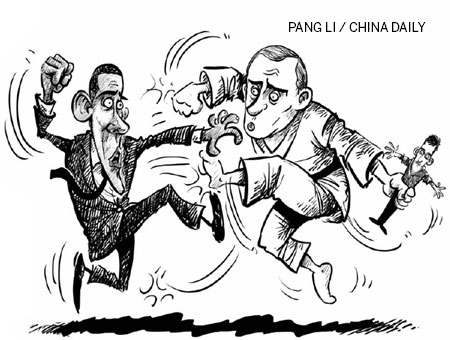US, Russia may control rift

US-Russia relations have reached a new low with US President Barack Obama canceling his meeting with his Russian counterpart Vladimir Putin. US-Russia ties were floundering even before former National Security Agency operative Edward Snowden sought asylum in Russia. Moscow's decision on Aug 1 to grant asylum to Snowden for one year worsened an already imperfect relationship, with Obama saying he was "disappointed" by Moscow's "Cold War" mentality at times.
Obama decided to cancel the presidential meeting scheduled for September in St Petersburg, where the two leaders will attend the G20 summit. And with no solution to the differences between the US and Russia in sight, Moscow is likely to remain locked in an all-round competition with Washington.
In military security, Russia believes in a nuclear equilibrium and strategic balance with the US, while the US has been trying to prove its superiority over Russia. Politically, the US seems keen to interfere in Russia's internal affairs, which Russia is resolutely opposed to. The two sides disagree on a range of issues like the Syrian crisis, human rights, arms control and cybersecurity. In the fields of finance, trade and energy, Russia does not want the hegemony of the dollar to continue, and advocates reform of the international monetary system and safeguards for its energy interests.















